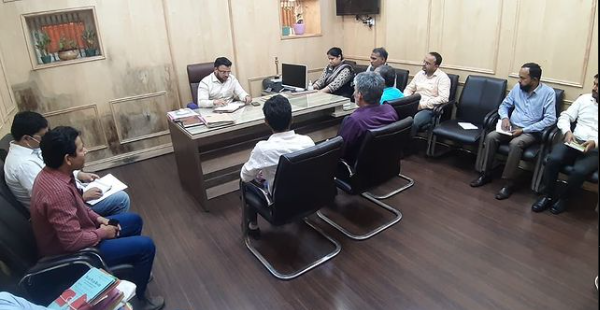New Delhi: Dr. Mohd. Rehan Raza has been appointed as the full-time Chief Executive Officer (CEO) of Delhi Waqf Board, replacing his previous part-time role. This decision comes after Raza was removed from his position as Additional District Magistrate (ADM) in Shahdara, where he faced scrutiny allegedly for submitting false affidavits related to the Eidgah case and for his involvement in the demolition of several mosques and shrines, reports Urdu daily Roznama Inquilab.
The Muslim community in Delhi has long demanded a change in leadership at the Waqf Board, but sources indicate that Raza’s removal from the ADM role has merely transitioned him to the CEO position. Prominent observers of Waqf affairs in Delhi have noted that Raza’s tenure has seen significant losses for Waqf properties, including demolitions at the Mamu Bhaiya shrine and the controversial affidavit regarding the 30,000-square-yard royal Eidgah.
Social activist Muhammad Faizan Dehlvi criticised the current administration, stating that the board, as a self-governing body under the government’s purview, requires urgent restructuring. He highlighted the ongoing issues faced by the board, including the lack of salaries for mosque imams, delays in welfare payments for widows, and late salaries for board employees, while simultaneously noting that substantial fees have been paid to lawyers from the Waqf fund.
Another activist, Nasser Khan, emphasised the inappropriateness of retaining an officer responsible for the destruction of numerous places of worship. He urged Chief Minister Atishi Marlena to replace the CEO and expedite the restructuring of the board to ensure better governance by its chairman and members.
Khan expressed frustration at the lack of action from Delhi’s five assembly members, none of whom have raised concerns about the board’s situation. He called for greater legal and community advocacy to safeguard Waqf properties, stressing that the community must hold its elected leaders accountable for their inaction.
The current state of the Waqf Board raises alarm among community leaders, who fear that the ongoing negligence and poor management may lead to further deterioration of its assets. Activists like Naseem Ahmed have reiterated the need for the Muslim community to actively engage with their leaders to demand improvements and accountability.
The community’s outcry continues as they await a response from the government to address the pressing issues surrounding the Delhi Waqf Board.




